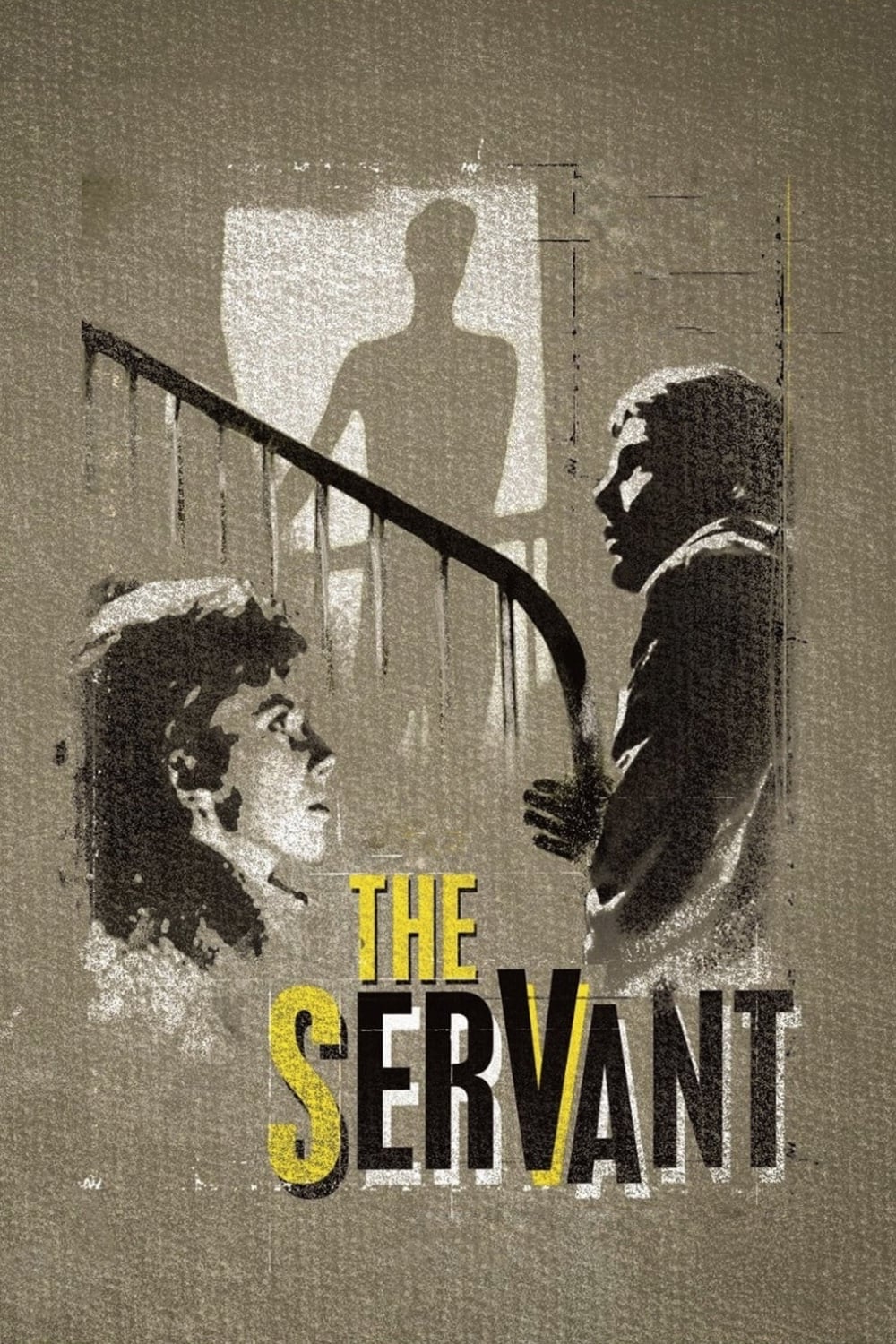
BRIEFLY:
 – A Masterpiece.
– A Masterpiece.
JUST A FEW WORDS (IN THE HEAT OF THE MOMENT):
In a few words, we will hardly be able to clarify why Joseph Losey’s film, The Servant, can be considered a masterpiece of filmmaking. We should perhaps think of doing something more like an analysis than just a simple and brief review in the heat of the moment so to give the right weight to the dynamics staged by this film, however, for this space we will try to be relatively short.
Filmed masterfully (to understand what we mean, just keep an eye on the camera movements in the scene of the initial interview), The Servant is a surreal masterpiece that tells of a certain bourgeois sterility (with rather childish characters) and also of a violence that rather than revolutionary is an iconographic one: developed and literally “staged” by subordinate classes who aspire, more than to subvert the system, to occupy the very same positions they would like to defy.
The mimetic character of desire.
For a very interesting theoretical connection to understand the dynamics of power, but mainly of the desire (homoerotic in some of its dynamics) that are inherent to this film, it is useful to turn our attention to the mimetic theory developed in the late 1950s by René Girard.
Briefly, “the hypothesis is based on the existence of a third element, mediator of desire, which is the Other. It is because the Other – taken as a model – who desires an object (conceived as a thing that the Other possesses and that the subject lacks) that the subject begins to desire it himself, and on the other hand the object acquires value only because it is desired by an Other. […].
The desire that the subject has for the object is nothing other than the desire that he has for the prestige – which he himself assigned – to the one who owns the object (or who wants to simultaneously desire the object) . […] “(taken from La Frusta Letteraria).
This concept is fruitfully staged by the director and with him also by the character of Hugo (Dirk Bogarde) in the figure and manipulations of the sister/lover. But also, socially denser as a trait, Hugo’s desire to live a life exactly like that of the “master”.
In fact (again from the site mentioned above) “when the pupil (subject) has the same knowledge (object) as the master (mediator), there is certainly no more neither teacher nor pupil but two people who have the same knowledge: the initial hierarchy that allowed to place one and the other in the world, one with respect to the other in their relationship, is abolished. The model (mediator) understands the danger that this confusion can present for him […]. But the more the mimetic rivals are close and try to differentiate themselves the more they end up resembling each other. The echoes of the “servant-master dialectic” and the notion of “unhappy consciousness” elaborated by Hegel in the Phenomenology of the Spirit and by Girard openly recalled are visible in this argument. “
In fact, the film’s ending draws a rather humiliating and degrading panorama with a crushing of personalities and an inversion of roles and allows the film to reach even a nihilistic position that draws a definitely apocalyptic scenario of the human soul and society.
PROS:
- Acting.
- Staging.
- Camera works.
- The surreal thone.
- Echoes of Luis Buñuel.
CONS:
- Did you find any? Let us know.
What do you think of this film? Please leave a comment below and let us know!
To read more of these film “pills”, please visit our dedicated section.
Or, if you’re after a more-in-depth look at some films and/or filmmaking techniques more than just a quick take on the films as we watch them, please have a look at our Film Analysis page.
GENERAL INFO:
 7.9
7.9

Photos
See all photos >>






